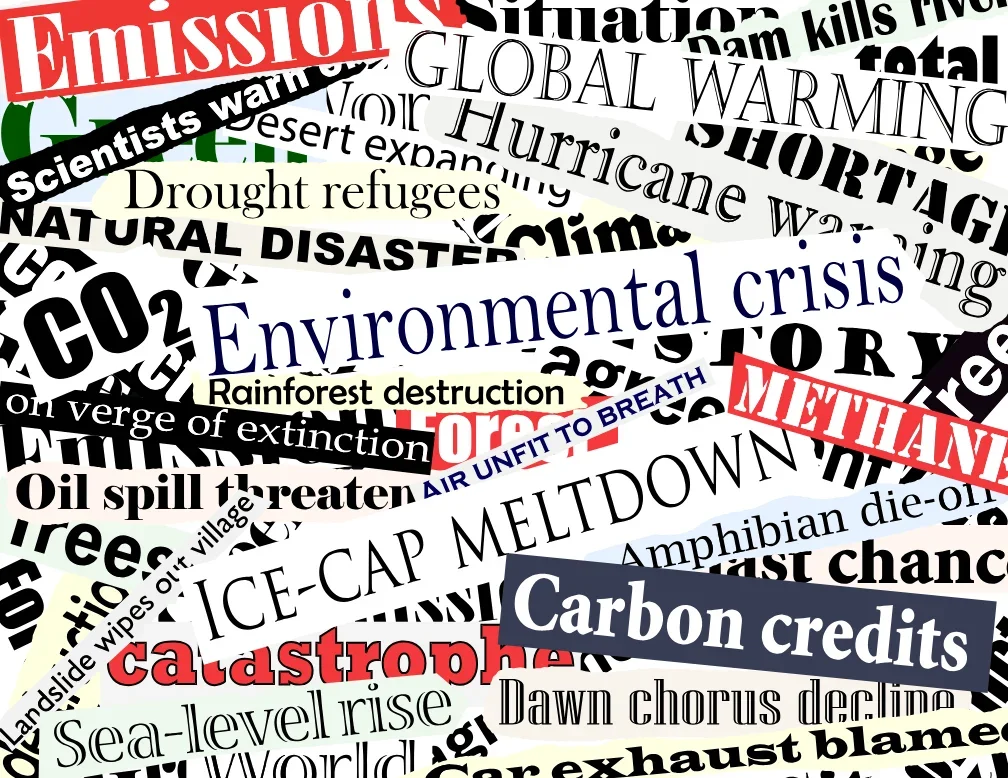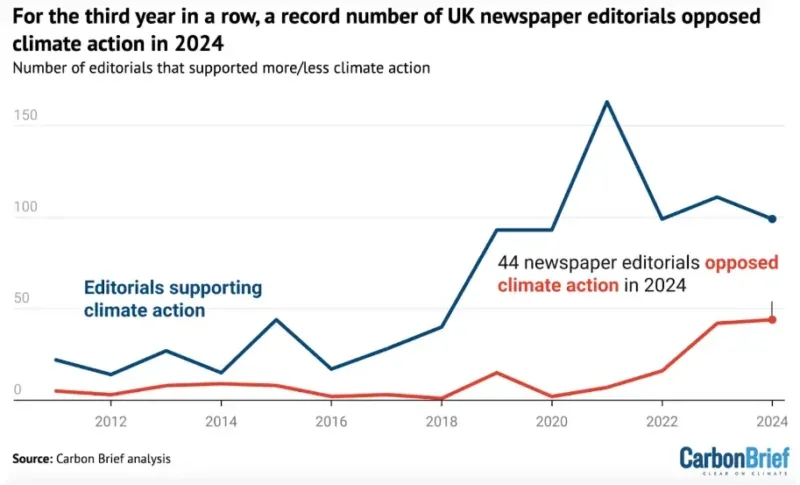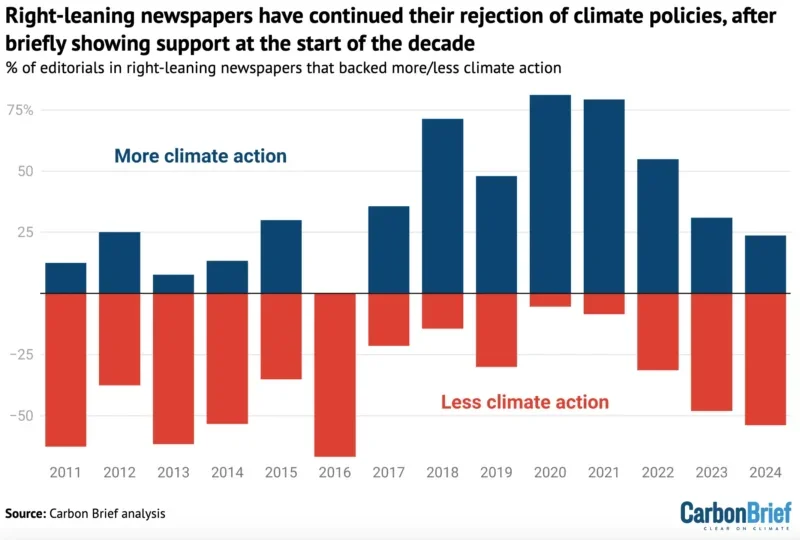
Scepticism that climate change is real has “almost entirely disappeared” from the opinion pages of British national newspapers in the past ten years, according to new research.
However articles dismissing or contesting policies designed to address the climate crisis marginally increased in the same time period.
The research, shared exclusively with Press Gazette, was commissioned by the non-profit Energy and Climate Intelligence Unit and carried out by a group of academics including Dr James Painter of the Reuters Institute for the Study of Journalism.
The researchers looked at 303 opinion pieces and editorials in which “global warming” or “climate change” appeared in the headline or first paragraph, which were published in nine UK national newspapers in August 2013 to September 2014 and August 2023 to September 2024.
They classified four of the newspapers as right-leaning (The Telegraph, The Sun, Express and the Mail), two as centre-right (The Times and the Financial Times) and three as left-leaning (The Guardian, The Independent and the Mirror).
In 2013/14, a fifth of all opinion pieces and editorials on climate change featured “evidence scepticism” questioning the science or claiming warming is not happening. In 2023/24 this had dropped to 5%.
There was an even bigger drop in what was described as “process scepticism”, which is usually seen as questioning scientific models or methods used to monitor and predict climate change. This appeared in a fifth of relevant opinion pieces in 2013/14 but dropped to 1%.
However “response scepticism” or “climate obstructionism” marginally increased from 23% to 24% across the decade although the nature of it has changed: previously technologies like wind farms were often criticised but this now manifests as attacks on wider aspects of net zero policy.
The research specifically cited The Telegraph, saying it “persistently gives a platform to sceptical voices on climate change”.
It found that in 2013/14 31% of relevant Telegraph opinion pieces contained evidence scepticism, 33% contained process scepticism and 35% contained response scepticism. Evidence and process scepticism dropped to 7% and 2% respectively by 2023/24 but response scepticism jumped to 60%, the highest of all the news outlets studied.
Geoffrey Lean, often described as the world’s longest-serving environmental correspondent, shared a comment with the researcher saying: “The strange thing is how out of touch some newspapers seem to be with their readers. Poll after poll show that vast majorities of Britons are concerned with climate change and one taken after the election found that three quarters (including 44% of Reform voters) backed net zero. About two thirds have made changes to their lifestyle to tackle climate change.”
Dr James Painter of RISJ said: “Our findings are consistent with other research suggesting that the emphasis of the arguments of those not wanting to take climate action has shifted in the media in many parts of the world. They also support the findings of other researchers who identify the high costs of taking action as the most common anti-action argument.
“Another characteristic is the relative absence, in the right-leaning media, of arguments outlining the costs of not taking action to reduce emissions or the co-benefits of taking action.”
Similarly climate science website Carbon Brief (which is funded by the European Climate Foundation) has found in its own annual analysis of UK newspaper editorials that 2024 was the third record-breaking year in a row in terms of the number opposing action on climate change.
It found that 44 newspaper editorials called for less action on climate change, up from 42 in 2023, mostly citing the negative economic impact.
There were still more than twice as many editorials supportive of climate action, although these were almost entirely in left-leaning and centre publications. The Guardian published 40 of the 99 supportive editorials.

Carbon Brief noted that right-leaning newspapers had appeared to have pivoted towards supporting action on climate change in 2020 and 2021 before a “steep decline” – putting them back where they were a decade ago on climate policies. The analysis classes The Sun, the Daily Mail, the Daily Express, the Daily Telegraph and their Sunday equivalents as right-leaning.

Email pged@pressgazette.co.uk to point out mistakes, provide story tips or send in a letter for publication on our "Letters Page" blog
